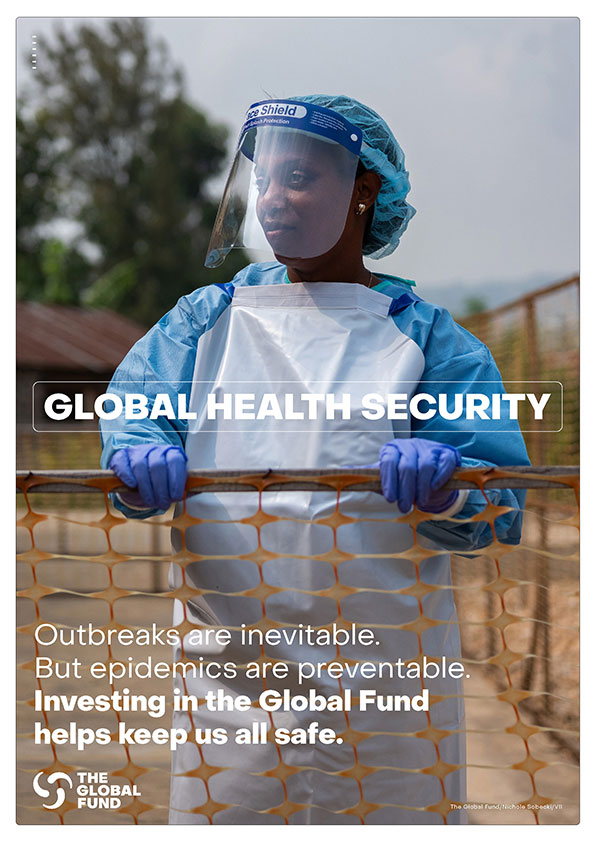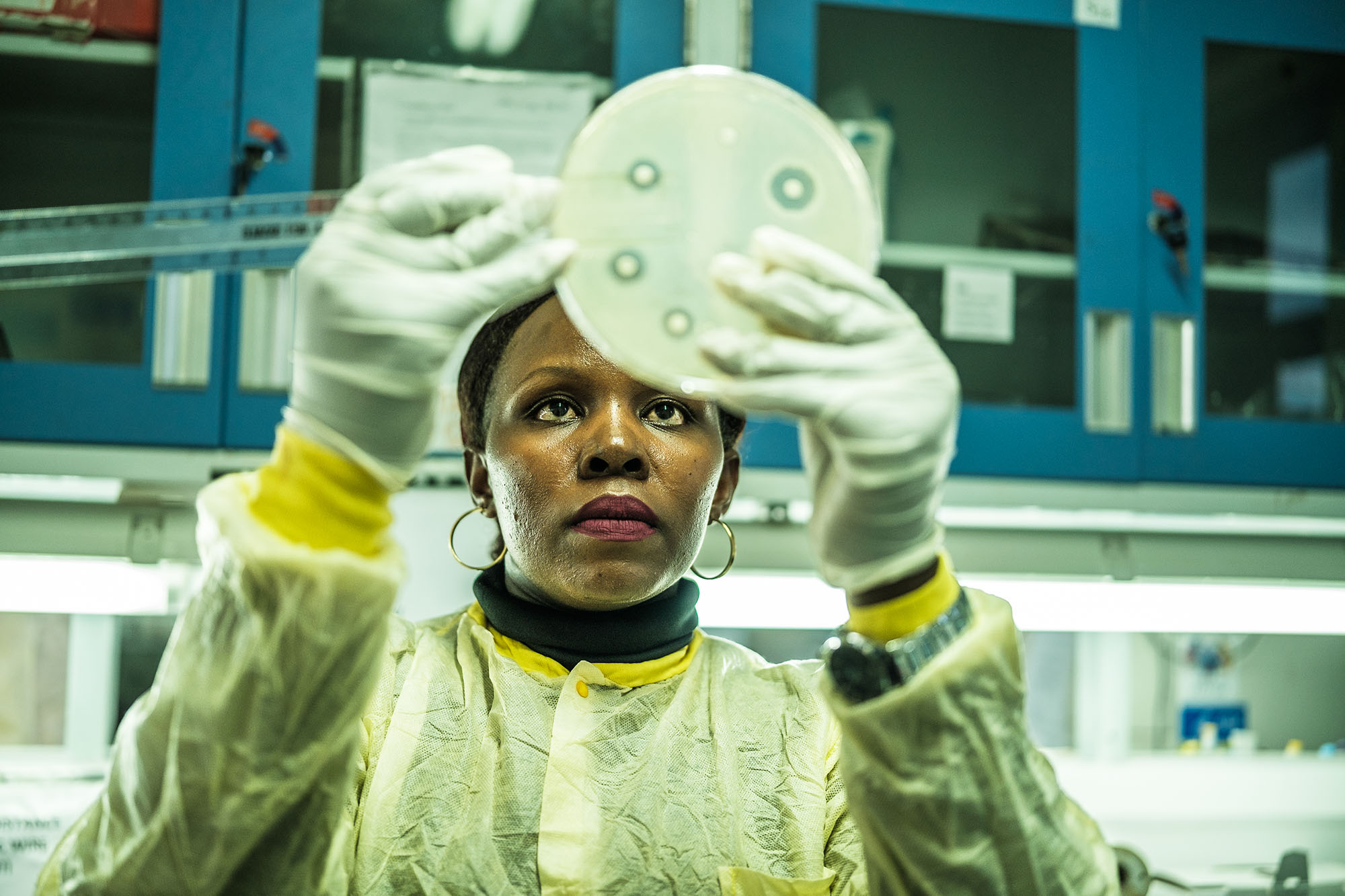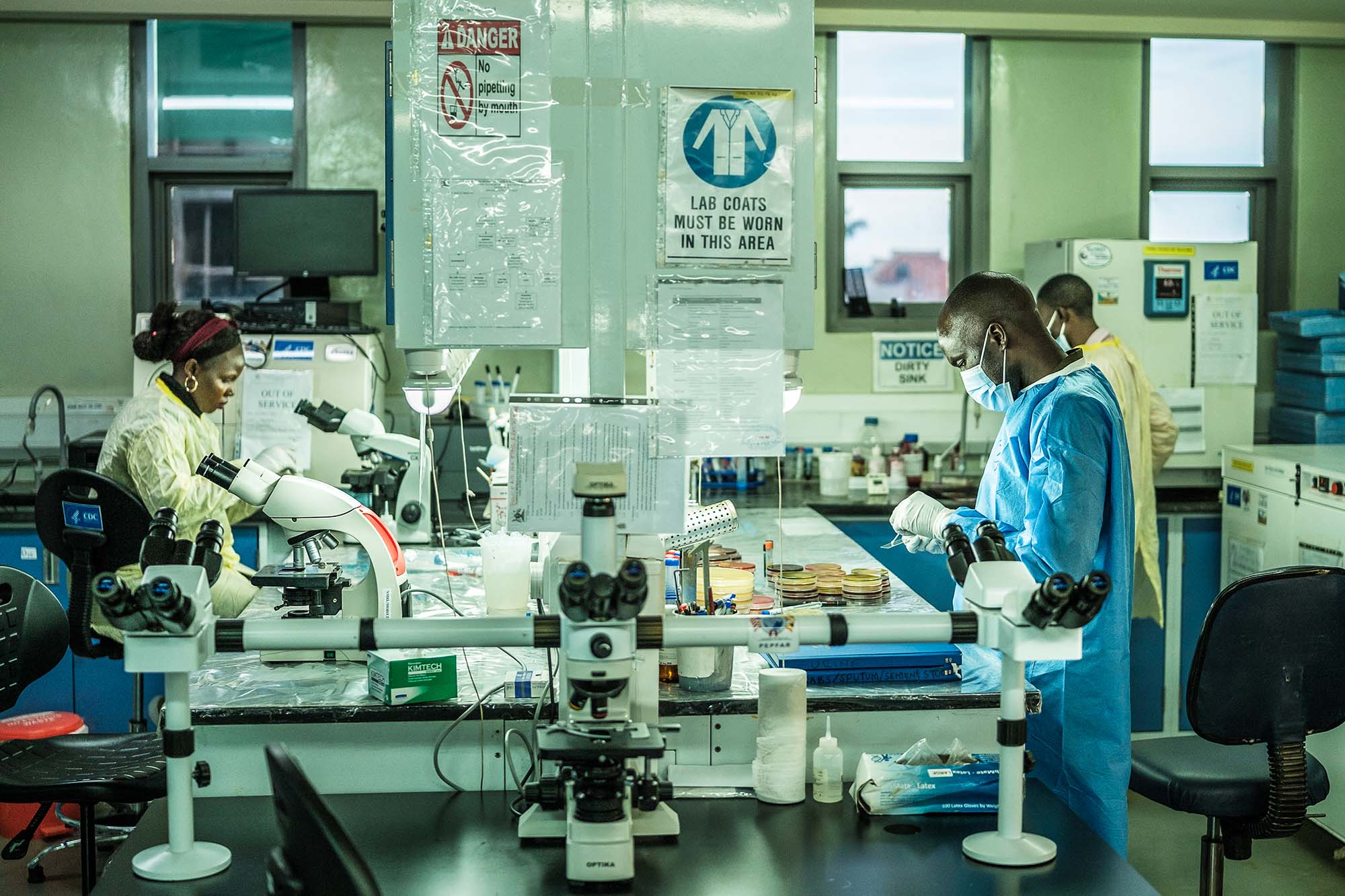Global health security protects people everywhere from the threat of infectious diseases by preventing, detecting and responding to outbreaks before they escalate into global health emergencies.
In 2003, the world narrowly avoided disaster when SARS, a lethal virus many times more deadly than COVID-19, spread to 29 countries within months. Swift containment efforts averted catastrophe, but that near-miss underscored a hard truth later made real by COVID-19: a health threat in one country can quickly become a crisis everywhere, and weaknesses in health systems put the entire world at risk.
Making the world safer for everyone means defeating HIV, TB and malaria as public health threats, which still kill millions of people each year. Fighting these three diseases not only saves lives, but also strengthens entire health systems, improves outbreak preparedness and response, fuels economic growth and promotes global stability. The Global Fund’s investments extend far beyond low- and middle-income countries. By confronting today’s deadliest epidemics and supporting stronger health and community systems, we help to reinforce health security worldwide – making all countries healthier, safer and more prosperous.
Preventing the Spread of Infectious Diseases
Stopping outbreaks at their source is the most effective and cost-efficient way to save lives and prevent deadly diseases from spreading across borders and continents. Since 2002, the Global Fund partnership has saved over 70 million lives, cut the combined death rate from AIDS, TB and malaria by 63% and helped to contain dangerous pathogens that have threatened countries around the world.
Through our investments to fight these three diseases, the Global Fund has consistently supported countries to strengthen health systems and respond more rapidly to new and emerging threats. When COVID-19 hit, we acted immediately, reprogramming existing grants and mobilizing US$5 billion in additional funding to support countries in mounting large-scale, effective responses. As the emergency phase of the pandemic passed, we adapted our approach, shifting investments to focus on pandemic preparedness: strengthening laboratory networks with enhanced biosecurity, expanding early warning systems and supporting frontline health workers.
By preventing the spread of deadly diseases, the Global Fund not only saves lives – it also builds essential defenses against future pandemics, making it a proven, ready-to-use tool for global health security.
Learn more
Enhancing Stability and Security
A safer and more secure world depends on global health. Health crises and fragile health systems can fuel economic instability, social unrest and forced migration, while creating conditions that increase the risk of conflict and extremism.
Strengthening global health is a powerful driver of stability. Efforts to end HIV, TB and malaria as public health threats not only save lives – they reduce inequality, support economic growth and help prevent the kinds of crises that drive displacement and insecurity. Resilient health systems enable countries to detect and contain outbreaks before they escalate, protecting communities, fostering social cohesion, supporting long-term development and prosperity, and accelerating progress toward self-reliance.
Investing in global health protects people, national security, global influence and economic interests. It reduces the risk of pandemics that destabilize entire regions and safeguards supply chains, trade and diplomatic partnerships.
Global health security is national security. The Global Fund’s work doesn’t just reduce the spread of infectious diseases; it contributes to stronger, more stable societies, reinforces international partnerships, unlocks economic opportunities and creates a safer, more prosperous future for all.
Read the Latest Results Report
Learn More



